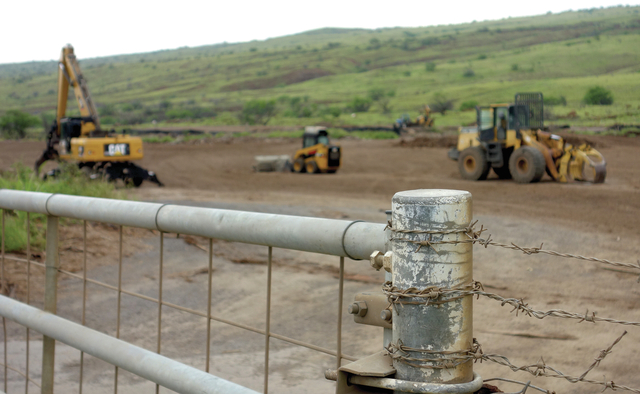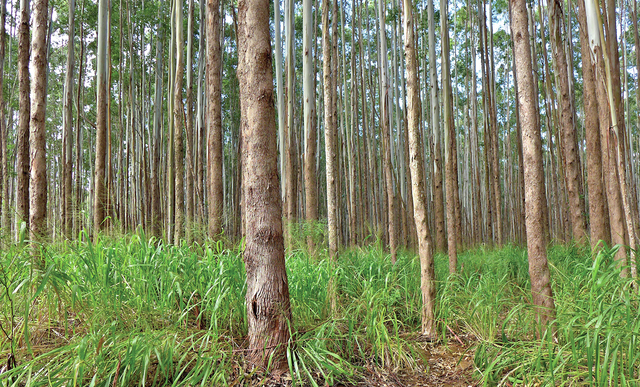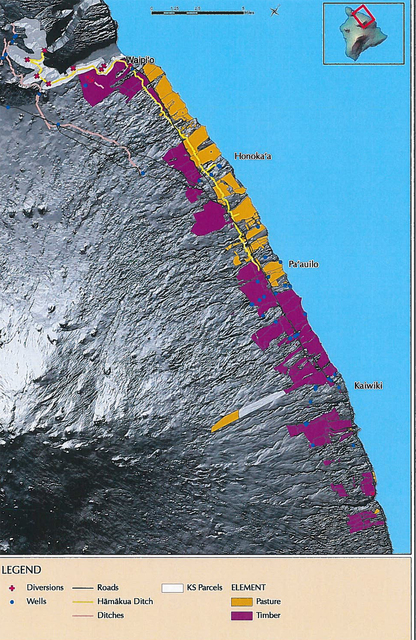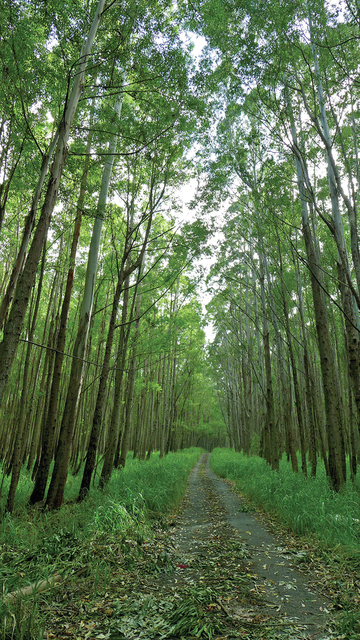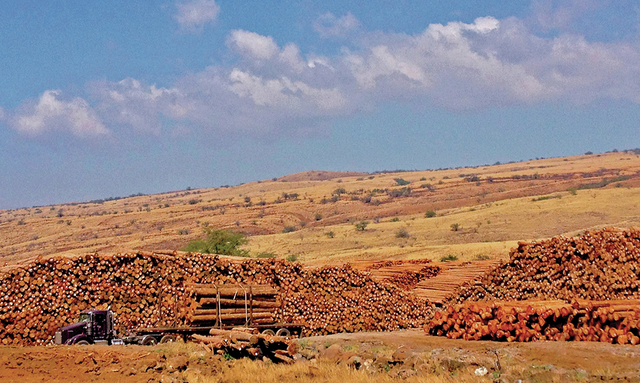HAMAKUA — Large trucks barreling down Kawaihae Road, piled high with eucalyptus logs grown on the Hamakua Coast and exported to China, have ceased — at least temporarily. ADVERTISING HAMAKUA — Large trucks barreling down Kawaihae Road, piled high with
HAMAKUA — Large trucks barreling down Kawaihae Road, piled high with eucalyptus logs grown on the Hamakua Coast and exported to China, have ceased — at least temporarily.
In early December, GMO Renewable Resources, also known as LHF Lopiwa LLC (LHF), notified Kamehameha Schools that they would surrender their lease on the 12,700 planted acres. The lease officially ended on Saturday.
“It was a surprise. We thought they would renew it,” said Marissa Harman, Kamehameha Schools’ director of asset management for Hawaii Island.
According to Nicholas Koch, president of the Hawaii Forest Industry Association, “Land leases end for a variety of reasons and usually a combination of reasons. Large timber investment groups consider economic viability, scale, strategic alignment of portfolio assets and overall risk profile for their forestry projects when making project level decisions. Since the first trees were planted in 1997, the Hamakua planted forest has been subject to global market forces in an increasingly competitive environment, with different owners over the years.”
Approximately 2,800 acres have been harvested to date. Some areas been pruned for regrowth. American Forest Management, Inc., who ran operations for LHF in Hamakua, did not respond to questions by deadline.
The rate of harvest averaged 2,500-3,000 tons per week and as much as 8,000 tons some weeks. The logs were loaded and transported weekly to a Kawaihae timber yard where they was stored until loaded onto a bulk cargo vessel at Kawaihae Harbor. Once a month, 32,000 tons were shipped off island.
Operations on the 12,700 acres in Hamakua may resume later this year.
“We are anticipating moving forward with forestry on our land,” Harman said. “We will issue a new lease in spring 2017.”
KS is seeking qualifications from interested bidders to enter into a new agreement for the plantation forest beginning today.
To Kamehameha Schools, this operation is a small piece of the pie. Of the 297,534 acres they own on the Big Island — about 81 percent of all lands they own in the state — 160,735 are used for agriculture.
“It’s a great time for us to re-look at our land, and integrate them with our community and educational needs. Kamehameha Schools remains committed to the forest industry and the stewardship of our lands, and we will harvest the existing eucalyptus forest,” Harman said.
KS dedicates more land to sustainable agriculture than any other private landowner in Hawaii.
Logging has been a profitable practice on the Big Island since the 1960s, when commercial timber plantations were first established, much on the east side of the island.


